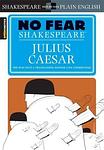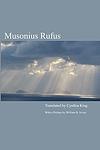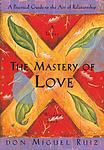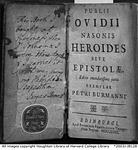The Greatest "Ancient Literature, Italy" Books of All Time
Click to learn how this list is calculated.
This list represents a comprehensive and trusted collection of the greatest books. Developed through a specialized algorithm, it brings together 300 'best of' book lists to form a definitive guide to the world's most acclaimed books. For those interested in how these books are chosen, additional details can be found on the rankings page.
Genres
Ancient Literature refers to the body of written works produced during the earliest periods of human history, typically up until the fall of the Roman Empire in the 5th century AD. This category encompasses a diverse array of texts, including religious scriptures, epic poetry, philosophical treatises, historical accounts, and dramatic plays, originating from various civilizations such as the Sumerians, Egyptians, Greeks, Romans, Chinese, and Indians, among others. Notable works within this genre include the "Epic of Gilgamesh," Homer's "Iliad" and "Odyssey," the plays of Sophocles and Euripides, the philosophical writings of Plato and Aristotle, the "Mahabharata" and "Ramayana" from India, and the foundational texts of Confucianism and Taoism in China. Ancient literature provides invaluable insights into the thoughts, beliefs, and cultural practices of early societies, and continues to influence modern storytelling, philosophy, and ethics.
The "Italy" category of books encompasses literature that is set in Italy, written by Italian authors, or explores the culture, history, and lifestyle of Italy. This category includes a wide range of genres, including fiction, non-fiction, memoirs, travelogues, and cookbooks. Books in this category often showcase the beauty and charm of Italy, its rich history and traditions, and the unique experiences of its people. Whether you're looking for a romantic novel set in Tuscany or a guidebook to the best gelato shops in Rome, the "Italy" category has something for everyone.
Countries
Date Range
Reading Statistics
Click the button below to see how many of these books you've read!
Download
If you're interested in downloading this list as a CSV file for use in a spreadsheet application, you can easily do so by clicking the button below. Please note that to ensure a manageable file size and faster download, the CSV will include details for only the first 500 books.
Download-
1. The Aeneid by Virgil
This epic poem tells the story of Aeneas, a Trojan who travels to Italy, where he becomes the ancestor of the Romans. It includes a series of prophecies about Rome's future and the deeds of heroic individuals, and is divided into two sections, the first illustrating the hero's journey and the second detailing the wars and battles that ensue as Aeneas attempts to establish a new home in Italy. The narrative is deeply imbued with themes of duty, fate, and divine intervention.
-
2. Decameron by Giovanni Boccaccio
"Decameron" is a collection of 100 stories told by a group of seven young women and three young men sheltering in a secluded villa just outside Florence to escape the Black Death, which was afflicting the city. The tales, which range from the erotic to the tragic, the hilarious to the instructional, are embedded in a rich framework narrative that provides a detailed portrait of the society of the Italian Renaissance.
-
3. De Rerum Natura by Lucretius
"De Rerum Natura" is a long didactic poem written in the first century BC, which explores Epicurean philosophy and the nature of the universe. The text delves into topics such as the nature of the gods, the atomic structure of the universe, human sensation and thought, and the fear of death. The author argues that understanding the physical world can free humans from superstition and fear, leading to peace of mind and true happiness.
-
4. The Odes by Horace
"The Odes" is a collection of lyric poems by an ancient Roman poet. The poems cover a wide range of themes, including love, friendship, wine, nature, morality, and the human condition. The author's style is noted for its elegance, wit, and mastery of meter. The poems also reflect the social and political context of Rome during the author's lifetime, providing insight into the culture and values of the period.
-
5. Julius Caesar by William Shakespeare
This classic play dramatizes the political and personal machinations surrounding the assassination of a powerful leader. The narrative follows the conspirators' plot, their execution of the plan, and the resulting chaos and war. The themes of ambition, loyalty, and the struggle for power are explored through complex character interactions and memorable soliloquies. The play also examines the consequences of political violence and the unpredictable nature of history.
-
6. Letters from a Stoic by Seneca
"Letters from a Stoic" is a collection of moral epistles written by a renowned Stoic philosopher. The letters provide practical guidance on everything from dealing with adversity and the pursuit of wisdom to the folly of consumerism and the nature of friendship. The author's stoic philosophy encourages peace of mind through understanding and accepting the natural order of the universe, and his letters offer timeless wisdom and insights that are still relevant today.
-
7. The Marriage Of Cadmus And Harmony by Roberto Calasso
"The Marriage of Cadmus and Harmony" is a unique exploration of Greek mythology. The narrative follows the journey of Cadmus, a Phoenician prince, and his marriage to Harmony, a goddess. The book delves deep into the complex and rich tapestry of Greek myths, presenting them as a continuous and ever-evolving story. It offers fascinating insights into the gods, heroes, and monsters of ancient Greece, while also drawing connections to modern life and thought.
-
8. Enneads by Plotinus
"Enneads" is a collection of 54 philosophical treatises by Plotinus, a prominent philosopher of the ancient world. The work is a cornerstone of Neoplatonism, a school of Hellenistic philosophy that sought to reconcile Greek philosophy with religious mysticism. The book covers a wide range of topics, including the nature of reality, the self, the universe, and the divine. The author argues for the existence of a transcendent One from which all existence emanates, and that the goal of human life is to strive for unity with this divine principle.
-
9. Satyricon by Petronius
The book in question is a satirical Roman work that provides a vivid, episodic portrayal of the decadent society during the reign of Nero. It follows the misadventures of the narrator and his companions as they navigate a world of excess, corruption, and hedonism. Through a series of events ranging from banquets to shipwrecks, the narrative offers a critique of the moral decay of Roman society, using humor, irony, and the perspective of characters from various social strata. The fragmented nature of the surviving text adds to its enigmatic and chaotic depiction of the period's social mores.
-
10. Titi Livi Ab urbe condita libri by Livy
This historical work offers a comprehensive narrative of the history of Rome, from its mythical origins to the reign of the Roman Emperor Augustus. The author chronicles the major political, military, and social events of the Roman Republic, including the founding of the city, the establishment of the Republic, the Punic Wars, and the rise of Julius Caesar. The book is a significant source of information about the early history of Rome and is often considered one of the most important works of Roman history.
-
11. Poetry by Quintus Lutatius Catulus
This book is a collection of ancient Roman poetry by a renowned statesman and poet. The poems reflect the author's experiences, thoughts, and feelings about life, love, politics, and society during the Roman Republic era. The author's eloquent and vivid writing style, combined with his astute observations and insights, make this book a valuable resource for understanding Roman culture and history.
-
12. Attis And Other Poems by Catullus
"Attis and Other Poems" is a collection of lyrical works that delve into themes of love, desire, and personal anguish. The poems are characterized by their emotional intensity and vivid imagery, often reflecting the poet's own tumultuous love affairs and inner turmoil. The titular poem, "Attis," stands out with its mythological narrative and exploration of themes such as identity and transformation. Throughout the collection, the poet's mastery of language and form is evident, as he skillfully weaves together personal experiences with broader reflections on human nature and the complexities of the human heart.
-
13. Natural History by Pliny (the Elder)
"Natural History" is an extensive work of literature that provides a comprehensive look at the knowledge of the natural world during the Roman era. The book is divided into 37 volumes, each focusing on different aspects such as geography, anthropology, zoology, botany, and mineralogy. The author's curiosity and fascination with the world are evident in his detailed observations and descriptions. The book also includes discussions on art, sculpture, and various other topics, providing a rich and detailed snapshot of the Roman understanding of the world.
-
14. Epistles by Horace
"Epistles" is a collection of poetic letters offering insights into the human condition, moral philosophy, and the art of living well. Written in the first century BCE, the work reflects the author's mature thoughts on various subjects, ranging from personal ethics to literary criticism. Through these letters, the poet shares his wisdom with friends and notable contemporaries, employing a conversational tone that blends humor, irony, and sincerity. The epistles serve as a guide to practical wisdom, emphasizing moderation, self-awareness, and the importance of living in harmony with nature and society.
-
15. Satires by Horace
"Satires" is a collection of poetic essays that delve into the follies and vices of Roman society during the first century BCE. Through a series of witty, critical, and often self-deprecating poems, the author explores themes such as greed, corruption, and social ambition, while advocating for a life of moderation and philosophical contentment. Employing a conversational tone and a keen eye for the absurd, the work satirizes the behaviors of both the elite and the common people, offering a timeless reflection on human nature and the pursuit of happiness.
-
16. Georgics by Virgil
The work in question is a didactic poem divided into four books, which collectively offer a rich and detailed guide to various aspects of agricultural life and practices in the ancient world. It covers topics such as the cultivation of crops, the care of trees and vines, the husbandry of livestock, and the management of bees, all interwoven with philosophical reflections on humanity's relationship with nature and the gods. The poem also explores the hardships and rewards of rural life, emphasizing the importance of hard work, experience, and understanding the rhythms and moods of the natural world. Throughout, the text is imbued with a deep appreciation for the land and serves as both a practical manual and a meditation on the art of living in harmony with the environment.
-
17. Eclogues by Virgil
The book in question is a collection of ten pastoral poems that delve into the idealized lives of shepherds in classical antiquity, set against the backdrop of a changing rural landscape. Through dialogues and monologues, the poems explore themes of love, the bucolic lifestyle, and the political turmoil of the time. The work reflects on the tensions between the simplicity of rural life and the encroaching influence of external forces, often drawing on mythological and allegorical elements to convey its messages. The pastoral mode serves as a platform for the poet to address broader social and political issues, while also celebrating the beauty and tranquility of nature.
-
18. Musonius Rufus by Musonius Rufus, Cynthia King
This book presents the teachings of Musonius Rufus, a prominent Stoic philosopher of the 1st century AD, whose ideas focus on the practical applications of Stoicism in daily life. Through a series of lectures and dialogues, Rufus emphasizes the importance of virtue as the sole path to happiness, advocating for simplicity in living, self-discipline, and equality between men and women in education and marriage. His accessible philosophy addresses how to live a good and moral life, covering topics from diet and exercise to the handling of emotions and the importance of philosophical study.
-
19. On The Ends Of Good And Evil by Marcus Tullius Cicero
"On the Ends of Good and Evil" is a philosophical work that explores the ethical theories of Hellenistic schools, including Stoicism, Epicureanism, and the Peripatetic tradition. Through a series of dialogues, the text delves into the nature of happiness and the ultimate end of human action, examining what constitutes the highest good. The author critiques and compares the doctrines of these schools, ultimately defending the Stoic view that virtue is the sole basis of happiness and the ultimate goal in life, while also acknowledging valuable insights from other philosophical traditions.
-
20. The Book Of The Courtier by Baldassare Castiglione
This Renaissance classic is a seminal work on etiquette and courtly manners, presenting an idealized vision of the perfect gentleman and lady at the courts of Italy. Through a series of dialogues set over four evenings, the book explores the attributes of a well-rounded courtier, emphasizing skills such as martial arts, physical grace, and intellectual pursuits, alongside the importance of moral virtue and the art of conversation. The text also delves into the complex interplay of love, the role of women in court, and the philosophical underpinnings of what it means to live a noble life, ultimately providing a guide to the refined behavior expected in aristocratic circles of the time.
-
21. The Art Of Love by Ovid
The book in question is a didactic poem that explores the intricacies of love and seduction from the perspective of ancient Roman society. It offers a series of instructions and advice on how to attract and retain lovers, presented in a playful and often ironic tone. The work is divided into three books, with the first two primarily addressing men and teaching them how to find, win, and keep a woman's love, while the third book is directed at women, advising them on how to secure and captivate a man's affection. Throughout the text, the author interweaves mythological references and personal anecdotes, creating a rich tapestry of amorous strategies that reflect the social and moral attitudes towards love and relationships of his time.
-
22. Heroides by Ovid
The book is a collection of fifteen epistolary poems presented as though written by various mythological heroines of Greek and Roman lore to their absent lovers. These letters express the women's emotions as they lament their separation, recount their memories, and plead for their lovers' return. The work explores themes of love, betrayal, and the female perspective within the context of classical myths, offering a unique insight into the emotional lives of characters such as Penelope, Dido, and Medea, who are traditionally depicted through the eyes of male heroes and writers.
-
23. Satires by Juvenal
"Satires" is a collection of poetic essays from ancient Rome that offer a scathing critique of the social and political landscape of the time. The work delves into the corruption, decadence, and moral decay of Roman society, using biting wit and a satirical tone to expose the vices and follies of its citizens and leaders. The author employs a range of literary devices, from irony to hyperbole, to lambast the greed, hypocrisy, and depravity he perceives, while also reflecting on human nature and the challenges of living a virtuous life amidst widespread societal failings. The text is not only a commentary on the specific historical context but has also been interpreted as a timeless exploration of the human condition.
-
24. Epigrams by Martial
The book is a classic collection of Latin poetry, renowned for its wit, sharp observations, and often biting satirical content. Comprising numerous short, pithy poems, the work captures the essence of Roman society, its vices, virtues, and daily life, through the lens of the poet's keen eye. The poet employs a range of literary devices, from irony to hyperbole, to craft epigrams that are at once humorous, poignant, and reflective of the human condition, making the collection a timeless exploration of social mores and personal relationships in ancient Rome.
-
25. On The Gods by Marcus Tullius Cicero
The book is a philosophical treatise that explores ancient theological concepts and the nature of the gods, presenting a critical examination of various religious beliefs and practices of the time. The author, a Roman statesman and scholar, engages in a series of dialogues that delve into the existence and attributes of the divine, contrasting the Epicurean view of detached gods with the Stoic belief in a providential order. Through rigorous argumentation and eloquent rhetoric, the work seeks to understand the role of the gods in human life and the universe, while also reflecting on the implications of piety, fate, and the pursuit of happiness within the context of Roman religion and philosophy.
Reading Statistics
Click the button below to see how many of these books you've read!
Download
If you're interested in downloading this list as a CSV file for use in a spreadsheet application, you can easily do so by clicking the button below. Please note that to ensure a manageable file size and faster download, the CSV will include details for only the first 500 books.
Download



















